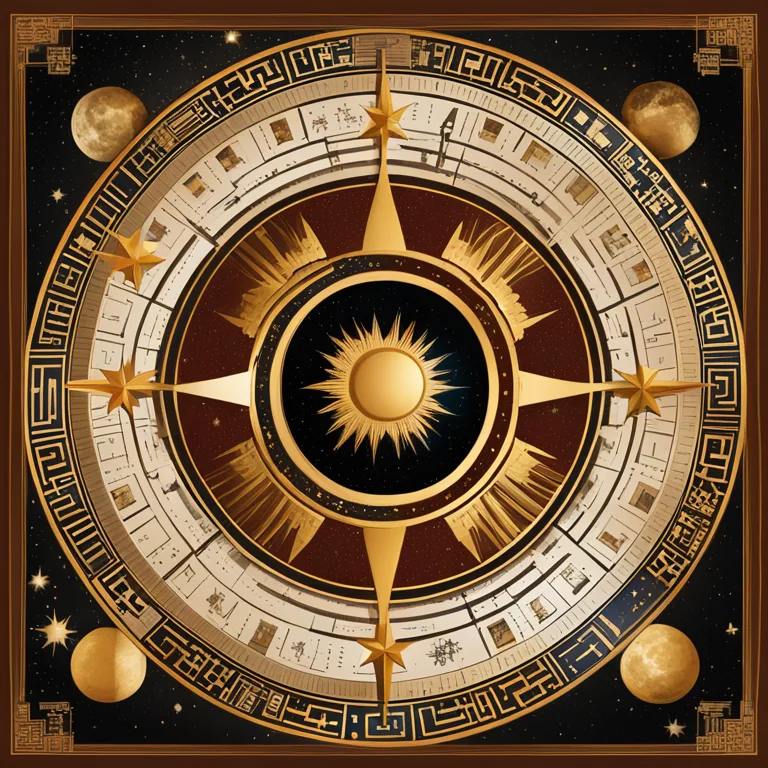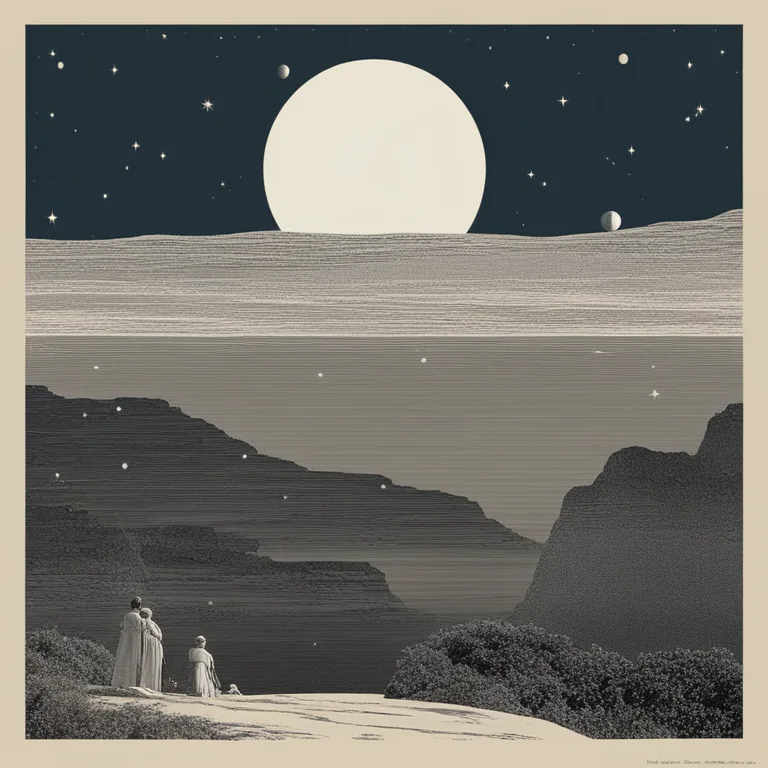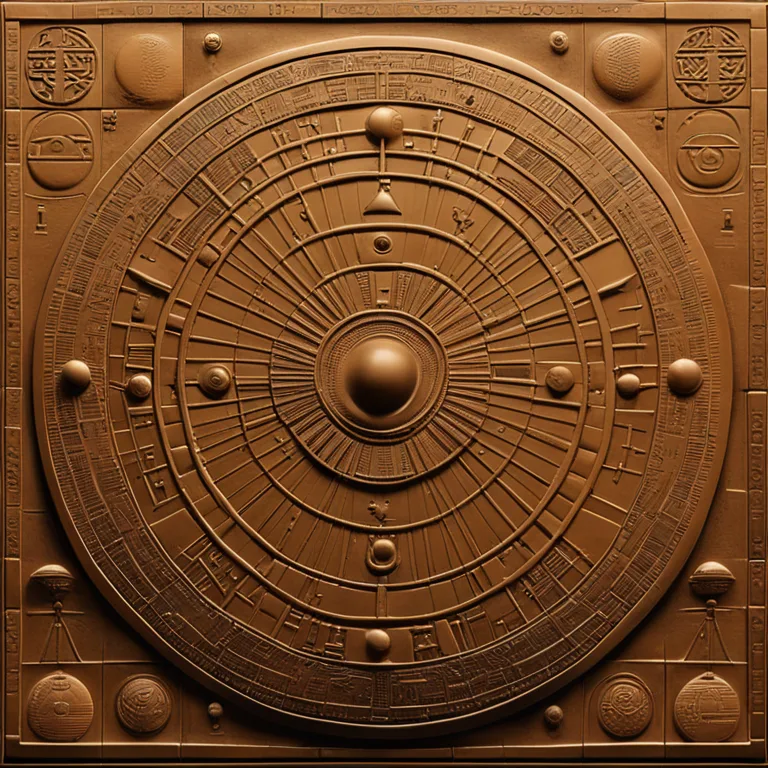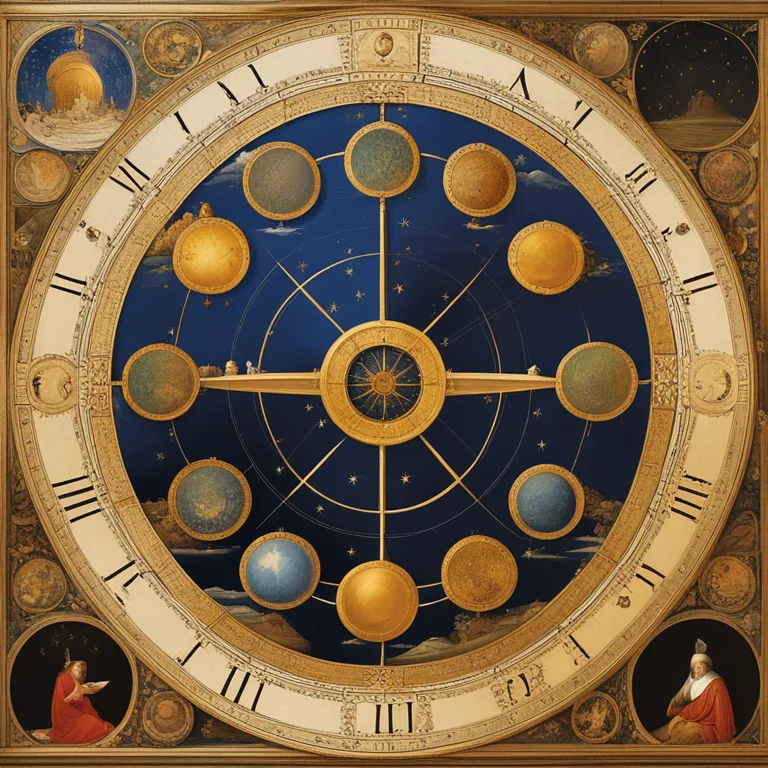
The Ancient Roots of Astrology
Discover the ancient roots and evolution of astrology, a discipline intertwining celestial patterns with earthly events.
article by Priya Deshmukh
A Celestial Dawn
The story of astrology begins with ancient civilizations who looked towards the heavens in awe and wonder. These early stargazers observed patterns in the night sky, noting how the positions of stars and planets shifted over time. They correlated these celestial movements with seasons, weather patterns, and natural phenomena, eventually attributing divine significance to them. Over centuries, this reverence evolved into a more structured system marrying astronomy and cultural mythology, laying the foundation for what would become astrology as we know it today.

Mesopotamian Astrological Roots
Astrology's earliest records date back to Mesopotamia around the 2nd millennium BCE. Here, the Babylonians developed an intricate system called 'Enuma Anu Enlil', which recorded celestial occurrences and their supposed earthly impacts. Their astrological inscriptions on clay tablets showcase sophisticated methods of tracking planetary movements and lunar cycles. These meticulous observations formed the basis of astrological interpretation, linking celestial events with terrestrial consequences – a practice that influenced cultures far beyond their empire's borders.

Hellenistic Harmonization
As civilizations intermingled, Hellenistic culture became a crucible for astrological advancement. After Alexander the Great's conquests melded Greek traditions with Babylonian astronomical knowledge, astrology began to take a more personalized turn. The concept of personal horoscopes emerged, positing that the positions of celestial bodies at one’s birth could influence an individual's character and destiny. This period saw the birth of the Zodiac, a celestial coordinate system that divides the sky into twelve signs, each linked to a specific period within the annual solar cycle.

The Astrological Age
The practice of astrology experienced ebbs and flows throughout history, witnessing periods of high esteem and times of severe skepticism. In ancient Rome, influential philosophers and politicians often relied on astrological forecasts. The Medieval Islamic world saw scholars translating and expanding upon Hellenistic astrological knowledge, preserving it during the times when it faced criticism and persecution in Europe. By the time of the Renaissance, astrology had regained favor and became a subject of study alongside alchemy and magic.

Astrology in the Modern World
Despite the scientific revolution and the decline of astrology as a scholarly discipline, it maintained a presence as a popular form of divination. In contemporary society, astrology enjoys widespread popularity, particularly in the realms of personal growth and relationship compatibility. With the advent of digital technologies, access to astrological resources has never been greater. Astrological apps and websites now often incorporate sophisticated algorithms to generate personalized horoscopes that many believe can guide people in their daily lives, decisions, and relationships well beyond 2024.
Looking to the Stars
As we gaze into the future, astrology seems poised to maintain its allure. With humanity's enduring fascination with celestial mysteries, it’s likely that this ancient practice will continue to evolve. Whether read for guidance, entertainment, or personal reflection, the stars seemingly hold an eternal place in human culture. Astrologers are looking towards upcoming planetary alignments and celestial events to create forecasts for the years ahead, including those pertinent to 2024 and beyond, ensuring the stars' influence remains embedded in our collective consciousness.
Published: 12/29/2023
Modified: 12/29/2023
More predictions
Come back here soon to learn more about yourself and your future


Your Astrological House Journey
Discover which astrological house you belong to and learn how it shapes your personality, life path, and experiences in the cosmic realm.


The Roots of Astrology: Tracing Its Linguistic Heritage
Delve into the linguistic history of astrology and uncover the ancient origins of this mystical practice's name and significance.